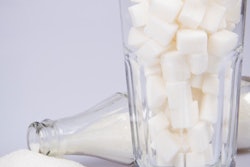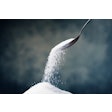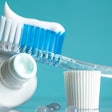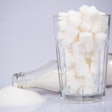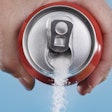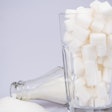
Added sugars have long-reaching effects that impact societal, oral, and systemic health. Part 1 of this series explores what counts as a sugary drink and the oral and systemic effects of drinking them. Part 2 will focus on how to counsel patients and activism initiatives.
Five health experts detailed the effects of sugary drinks during a panel presentation at the 2018 Chicago Dental Society Midwinter Meeting. The panelists emphasized that these beverages can have long-reaching consequences on both oral and overall health and that added sugars may come from surprising sources.
While all the experts discussed the effects of sugar-sweetened beverages, they approached the topic from different areas of expertise, including public activism, cancer prevention, patient counseling, and oral diseases. They also drew from their experience as scientists, activists, clinicians, and professors.
 Panelists from left to right: Poonam Jain, BDS, MPH; Julie Janssen, RDH; Sharon Clough, RDH; Elissa Bassler; and Charles LeHew, PhD.
Panelists from left to right: Poonam Jain, BDS, MPH; Julie Janssen, RDH; Sharon Clough, RDH; Elissa Bassler; and Charles LeHew, PhD."Sugar-sweetened beverages are associated with two critical health concerns in the U.S.: dental caries and obesity," said Julie Janssen, RDH, from the division of oral health at the Illinois Department of Public Health.
Janssen was joined by presenters from the University of Illinois, Illinois Public Health Institute, ADA Council on Advocacy for Access and Prevention, and A.T. Still University Missouri School of Dentistry & Oral Health in St. Louis.
During the well-attended lecture, the panelists focused on four key questions:
- What counts as a sugar-sweetened beverage?
- What are the health effects of sugary drinks?
- How can providers counsel patients?
- What is happening with public activism?
Part 1 of this series addresses the first two questions. Part 2 will explore the last two.
What counts as a sugar-sweetened beverage?
When thinking about sugar-sweetened beverages, sodas are often the first drink that comes to mind. But the definition also includes fruit drinks with added sugars, sports drinks, energy drinks, presweetened coffees and teas, and horchata, explained Charles LeHew, PhD, from the Institute for Health Research and Policy at the University of Illinois at Chicago.
“Sugar-sweetened beverages are associated with two critical health concerns in the U.S.: dental caries and obesity.”
More surprising may be what doesn't count as a sugar-sweetened beverage, such as diet drinks, 100% fruit juice, coffee and tea that are flavored by the consumer, alcohol, and flavored milk.
"So when I put several teaspoons of honey in my drink, it doesn't count," LeHew said.
Several organizations have set recommendations for the amount of added sugars consumed daily. The World Health Organization has the most stringent guideline of no more than 25 grams (or 6 teaspoons) of added sugars per day. Under this recommendation, even one can of most sodas would be over the recommended limit.
The U.S. Dietary Guidelines for Americans 2015-2020 are a little less stringent, with the recommendation of limiting added sugar consumption to 50 grams (or 12 teaspoons) per day. However, one can of Mountain Dew is almost the entire added sugar allowance for the day.
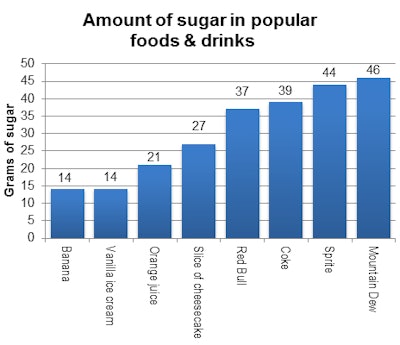
What are the health effects of sugary drinks?
Consuming high amounts of added sugars is associated with a variety of oral diseases, the most obvious of which are caries. Kids who drink one can of soda per day have more than twice the likelihood of developing caries than those who don't, according to research presented by Poonam Jain, BDS, MPH, from the A.T. Still University Missouri School of Dentistry.
Dr. Jain also noted that kids have twice the risk of developing caries if they drink water with a powdery sugar packet added, and water fluoridation does not entirely offset the additional risk.
"Water fluoridation does alleviate to some extent, but it's not a magic bullet," she said.
Perhaps just as concerning is the risk of dental erosion from consuming these often highly acidic drinks, particularly energy drinks. However, erosion doesn't just come from sugar-sweetened beverages. The acidic phosphoric and citric acids are also found in diet drinks and even sugar-free sparkling water, such as La Croix and Perrier.
"A lot of people are drinking diet beverages, but they still have phosphoric and citric acids," Dr. Jain said. "It's dangerous to recommend just diet soda or diet products. We have to be careful we are not creating another problem, while we're solving one."
As for systemic health effects, added sugars have been tied to metabolic syndrome, overweight/obesity, type 2 diabetes, cardiovascular disease, and kidney stones, according to Dr. Jain. And LeHew emphasized the role high-sugar consumption plays in overweight and obesity, which in turn affect cancer risk, his area of expertise.
"Sugar-sweetened beverages contribute to the oral health burden and the overall health burden," LeHew said. "Three of the top four cancers -- female breast cancer, colorectal cancer, and kidney cancer -- are associated with overweight and obesity."
So now that you know what sugar-sweetened beverages are and how they affect oral and overall health, what can you do about them? Part 2 of this series will explore practical ways to counsel patients and the public health activism efforts around sugar-sweetened beverages.





